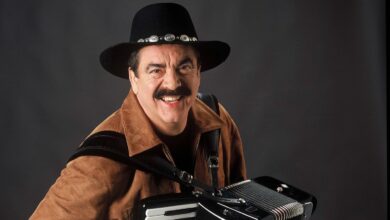Music – The Universal Language?

Correspondente
Musical
Hello everyone, hope everyone is having a great start to their new year!
I wanted to tackle a subject that essentially has 2 parts to it. First of all, is music the universal language and secondly, if so – does everyone like it? For this week, we will look at “Music – The Universal Language.”
Quite simply, to start – yes, it is. The statement that “music is the universal language” was first stated in 1841 by Henry Wadsworth Longfellow and he could not have been more right. This at a time when there was no radio, TV, internet to validate such a statement by way of seeing all countries and cultures around the world flourishing with their own music.
Music (as a whole, not as an individual style) quite simply, is the only thing we can all agree on. Regardless of the nationality, every country or culture has its own music, both historically and presently developing. In fact, today, almost every country has its own diverse music scene with various styles to suit all of everyone’s subjective tastes. For example, the USA has rap, rock or pop music just like Russia does, just like Egypt does or just like Peru has. That’s a tiny example of how music (REGARDLESS of the language it is being sung in) affects us individually as a listener. One thing is certain though, people from totally different cultures all respond the same way to calming or exciting music. In effect, we digest music the same way, regardless of old music, new music, Spanish music or Tibetan music. Another way of looking at it is that an elderly person gets as much out of listening to what they like from way back when as the youngest kid gets from listening to say – Kendrick Lamar, for those who are fans. We can also look at music as a TV, what we all decide to put on it is irrelevant. Music as a whole, though broad and vague, is the only thing we all like or agree that we like. 95% of the world that is, but I will get into that next issue.
It is believed that music has been in existence for at least 55,000 years, plenty of time to be ingrained in the very fabric of our lives. Plenty of time to gain diversity upon our exploits to different regions as we cultivated new areas of the world. Imagine the explorers of the world – Magellan, Vasco Da Gama, Christopher Columbus – finding native indigenous people in those lands who already had music of their own, regardless of the simplicity or complexity of it. It has to mean that music moved with people out of early settlements into new lands.
Prior to recorded music, music had been molded according to cultures, their own perception of music as well as instruments very specific to those cultures. Almost like having a representative from every country be given a square and told to come back when they have come up with something to do with it – the possibilities are endless, even more so with music.
Music has been/is intentionally used to honor religious and historical figures, to accent religious or historical rituals – all validated by proof of findings from at least 3400 years ago. It has been used to initiate political movements (see Portugal in April 25, 1974), accent political campaigns, have militaries march to a beat or even simply protesting against governments – all with the intent on gathering unity. All of this, in any respective spoken/sung language of the country it is taking place in. In fact, this happens so well that since the advent of recorded music, youth all dress and fraternize with one another according to the style of music they listen to. It is no wonder that politicians try to hit on demographics that are largely already gathered together by virtue of the music they are all bound to.
All around the world we all rejoice with music, we all take solace with music, we dance to music, we worship with music, we soothe babies with music, we mourn loved ones with music, we celebrate birthdays (happy birthday is sung in EVERY language) and events with music and we have our lives timestamped with individual songs. One of the great things that happens is when a song affects us so much that is in a language we may not understand and we still sing along and need to listen to it often, like Gagnam Style or Despacito or whatever it may be.
Therefore, it is safe to say that music is a universal language with no nationality behind it that we all speak. 95% of us that is, and that we cover in the next issue – “Music – Does Everyone Like It”?








Redes Sociais - Comentários